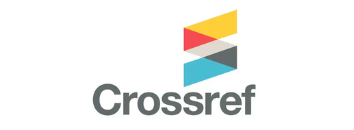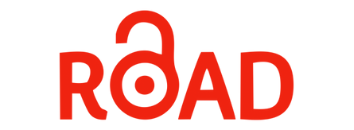Factors Influencing Behavior to Reducing Household Food Waste in Indonesia
DOI:
https://doi.org/10.24002/kinerja.v26i1.5493Keywords:
food waste, theory of planned behavior, habitsAbstract
The introduction of the determining factor is presumed to be powerful medium to promote a powerful intrusion into household waste management in Indonesia. This study expands the variables theory of planned behavior, the theory of interpersonal characteristics, and a complete model of environmental behavior by using intentions, attitudes, subjective norms, perceived behavioral control, habits, emotions. The sample in this study found 132 people, data processed using SEM Amos version 24. Statistical results and discussion showed that significant factors for behavior to reduce food waste were intentions, habits, attitudes, and perceived behavioral control. And that habits play an essential role in this research, so it is necessary to focus on the importance of the practice to get rid of addictions and be worth emphasizing
Keywords: food waste, theory planned behavior, habits
References
Abdelradi, F. (2018) ‘Food waste behaviour at the household level: A conceptual framework’, Waste Management. Elsevier Ltd, 71, pp. 485–493. doi: 10.1016/j.wasman.2017.10.001.
Ajzen, I. (1991) ‘The theory of planned behavior’, Orgnizational Behavior and Human Decision Processes, 50, pp. 179–211. doi: 10.1016/0749-5978(91)90020-T.
Aktas, E. et al. (2018) ‘A consumer behavioural approach to food waste’, Journal of Enterprise Information Management, 31(5), pp. 658–673. doi: 10.1108/JEIM-03-2018-0051.
Ariyani, L. and Ririh, K. R. (2020) ‘Understanding Behavior of Household Food Waste Management: Food Waste Hierarchy Context’, Jurnal Ilmiah Teknik Industri, 19(2), pp. 142–154. doi: 10.23917/jiti.v19i2.11994.
Bamberg, S. and Möser, G. (2007) ‘Twenty years after Hines, Hungerford, and Tomera: A new meta-analysis of psycho-social determinants of pro-environmental behaviour’, Journal of Environmental Psychology, 27(1), pp. 14–25. doi: 10.1016/j.jenvp.2006.12.002.
Bissing-Olson, M. J., Fielding, K. S. and Iyer, A. (2016) ‘Experiences of pride, not guilt, predict pro-environmental behavior when pro-environmental descriptive norms are more positive’, Journal of Environmental Psychology. Elsevier Ltd, 45, pp. 145–153. doi: 10.1016/j.jenvp.2016.01.001.
Bortoleto, A. P., Kurisu, K. H. and Hanaki, K. (2012) ‘Model development for household waste prevention behaviour’, Waste Management. Elsevier Ltd, 32(12), pp. 2195–2207. doi: 10.1016/j.wasman.2012.05.037.
Botetzagias, I., Dima, A. F. and Malesios, C. (2015) ‘Extending the Theory of Planned Behavior in the context of recycling: The role of moral norms and of demographic predictors’, Resources, Conservation and Recycling. Elsevier B.V., 95, pp. 58–67. doi: 10.1016/j.resconrec.2014.12.004.
Cohen, J. B. (1968) ‘Toward an Interpersonal Theory of Consumer Behavior’, California Management Review, 10(3), pp. 73–80. doi: 10.2307/41164119.
Deutsch, M. and Gerard, H. B. (1955) ‘A study of normative and informational social influence upon individual judgement. Journal of Abnormal and’, Social Psychology, 51, pp. 629–636.
Evans, D. (2011) ‘Blaming the consumer - once again: The social and material contexts of everyday food waste practices in some English households’, Critical Public Health, 21(4), pp. 429–440. doi: 10.1080/09581596.2011.608797.
Fami, H. S. et al. (2019) ‘Determinants of household food waste behavior in Tehran city: A structural model’, Resources, Conservation and Recycling. Elsevier, 143(August 2018), pp. 154–166. doi: 10.1016/j.resconrec.2018.12.033.
Ferdinand, A. (2014) Metode Penelitian Manajemen. 5th edn, Badan Penerbit Universitas Diponegoro. 5th edn. Semarang.
Forgas, J. P. (1994) ‘The role of emotion in social judgments: An introductory review and an Affect Infusion Model (AIM)’, European Journal of Social Psychology, 24(1), pp. 1–24. doi: 10.1002/ejsp.2420240102.
Göbel, C. et al. (2015) ‘Cutting food waste through cooperation along the food supply chain’, Sustainability (Switzerland), 7(2), pp. 1429–1445. doi: 10.3390/su7021429.
Graham-Rowe, E., Jessop, D. C. and Sparks, P. (2014) ‘Identifying motivations and barriers to minimising household food waste’, Resources, Conservation and Recycling. Elsevier B.V., 84, pp. 15–23. doi: 10.1016/j.resconrec.2013.12.005.
Graham-Rowe, E., Jessop, D. C. and Sparks, P. (2015) ‘Predicting household food waste reduction using an extended theory of planned behaviour’, Resources, Conservation and Recycling. Elsevier B.V., 101, pp. 194–202. doi: 10.1016/j.resconrec.2015.05.020.
Grob, A. (1995) ‘A Structural Model of Environmental Attitudes And Behavior’, Journal of Environmental Psychology, 15(4), pp. 209–220.
Hair, J. F. et al. (2012) ‘An assessment of the use of partial least squares structural equation modeling in marketing research’, Journal of the Academy of Marketing Science, 40(3), pp. 414–433. doi: 10.1007/s11747-011-0261-6.
Hebrok, M. and Boks, C. (2017) ‘Household food waste: Drivers and potential intervention points for design – An extensive review’, Journal of Cleaner Production. Elsevier Ltd, 151, pp. 380–392. doi: 10.1016/j.jclepro.2017.03.069.
Janssens Kim, Wim Lambrechts, Annet van Osch, J. S. (2019) ‘How Consumer Behavior in Daily Food Provisioning A ff ects Food Waste at Household Level in’.
Klöckner, C. A. (2013) ‘A comprehensive model of the psychology of environmental behaviour-A meta-analysis’, Global Environmental Change, 23(5), pp. 1028–1038. doi: 10.1016/j.gloenvcha.2013.05.014.
Lerner, J. S. and Keltner, D. (2000) ‘Beyond valence: Toward a model of emotion-specific influences on judgement and choice’, Cognition and Emotion, 14(4), pp. 473–493. doi: 10.1080/026999300402763.
Mondéjar-Jiménez, J. A. et al. (2016) ‘From the table to waste: An exploratory study on behaviour towards food waste of Spanish and Italian youths’, Journal of Cleaner Production, 138, pp. 8–18. doi: 10.1016/j.jclepro.2016.06.018.
Noorca, Dhafintya. 2021 Food Loss dan Food Waste di Indonesia Mencapai 184 Kg Per Orang Setahun [online]
Available at: https://www.suarasurabaya.net/kelanakota/2021/food-loss-dan-food-waste-di-indonesia-mencapai-184-kg-per-orang-setahun/ [diakses tanggal 20 Desember 2021]
Quested, T. E. et al. (2013) ‘Spaghetti soup: The complex world of food waste behaviours’, Resources, Conservation and Recycling. Elsevier B.V., 79, pp. 43–51. doi: 10.1016/j.resconrec.2013.04.011.
Russell, S. V. et al. (2017) ‘Bringing habits and emotions into food waste behaviour’, Resources, Conservation and Recycling. Elsevier, 125(May), pp. 107–114. doi: 10.1016/j.resconrec.2017.06.007.
Sarstedt, M., Ringle, C. M. and Hair, J. F. (2017) Partial Least Squares Structural Equation Modeling, Handbook of Market Research. doi: 10.1007/978-3-319-05542-8.
Steg, L. and Vlek, C. (2009) ‘Encouraging pro-environmental behaviour: An integrative review and research agenda’, Journal of Environmental Psychology. Elsevier Ltd, 29(3), pp. 309–317. doi: 10.1016/j.jenvp.2008.10.004.
Vining, J. and Ebreo, a. (2002) ‘Emerging theoretical and methodological perspectives on conservation behavior’, New Handbook of Environmental Psychology, 60607(312), pp. 541–558. doi: 10.1016/j.jenvp.2004.02.001.
Visschers, V. H. M., Wickli, N. and Siegrist, M. (2016) ‘Sorting out food waste behaviour: A survey on the motivators and barriers of self-reported amounts of food waste in households’, Journal of Environmental Psychology. Elsevier Ltd, 45, pp. 66–78. doi: 10.1016/j.jenvp.2015.11.007.
Webb, D. et al. (2013) ‘Self-determination theory and consumer behavioural change: Evidence fromahousehold energy-saving behaviour study’, Journal of Environmental Psychology. Elsevier Ltd, 35, pp. 59–66. doi: 10.1016/j.jenvp.2013.04.003.
Weiss, H. M. and Beal, D. J. (2005) ‘The Effect of Affect in Organizational Settings Article information ’:, The Effect of Affect in Organizational Settings, Research o, pp. 1–21.















